The main difference between the work and living areas in your home is functionality. In contrast to the bedroom, the office benefits from efficiency rather than comfort and should therefore be designed in such a way that the productivity of the person working in it is increased.
At the same time, a designer is not expected to sacrifice appearance for functionality.
A good designer will balance them in even the smallest home office or so that they are actually part of a room with a different purpose. When a home office doesn’t work, it’s a wasted investment that you won’t even take advantage of. This is exactly why you should pay attention to every detail.
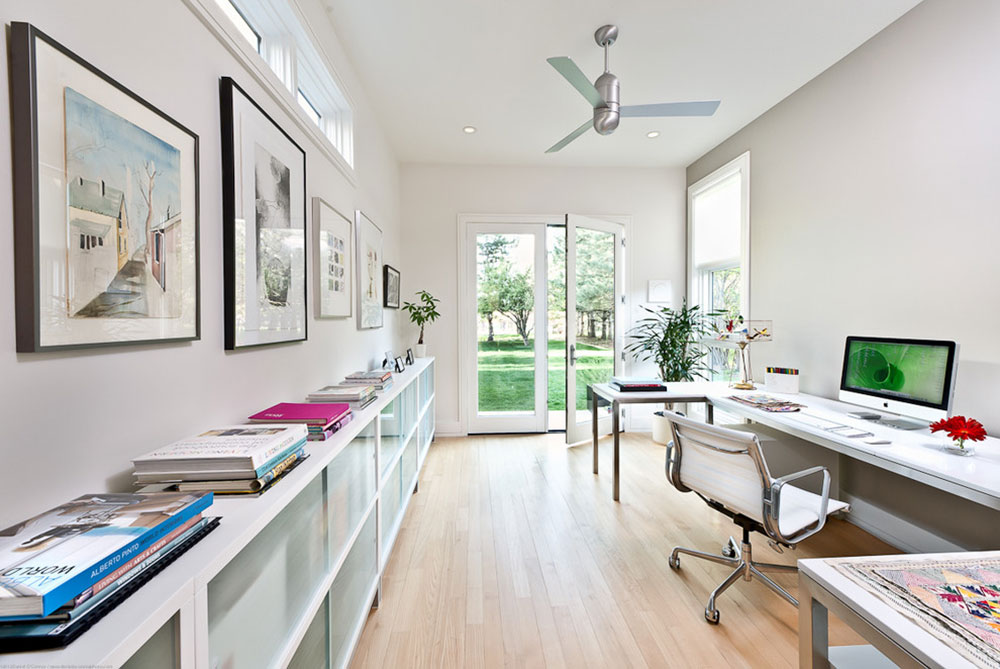 Image source: Kimberly Demmy Design
Image source: Kimberly Demmy Design
We’re trying to say that choosing great chairs and desks is not enough. What people often neglect in an office is flooring. Home office floor coverings should be sturdy, durable and ideally combine with the rest of your decor.
Still, coming up with home office flooring ideas that are right for your space can be a challenge. Because of this, we’ve made some basic comparisons and collected some good ideas that can help you solve this problem:
Laminate floors
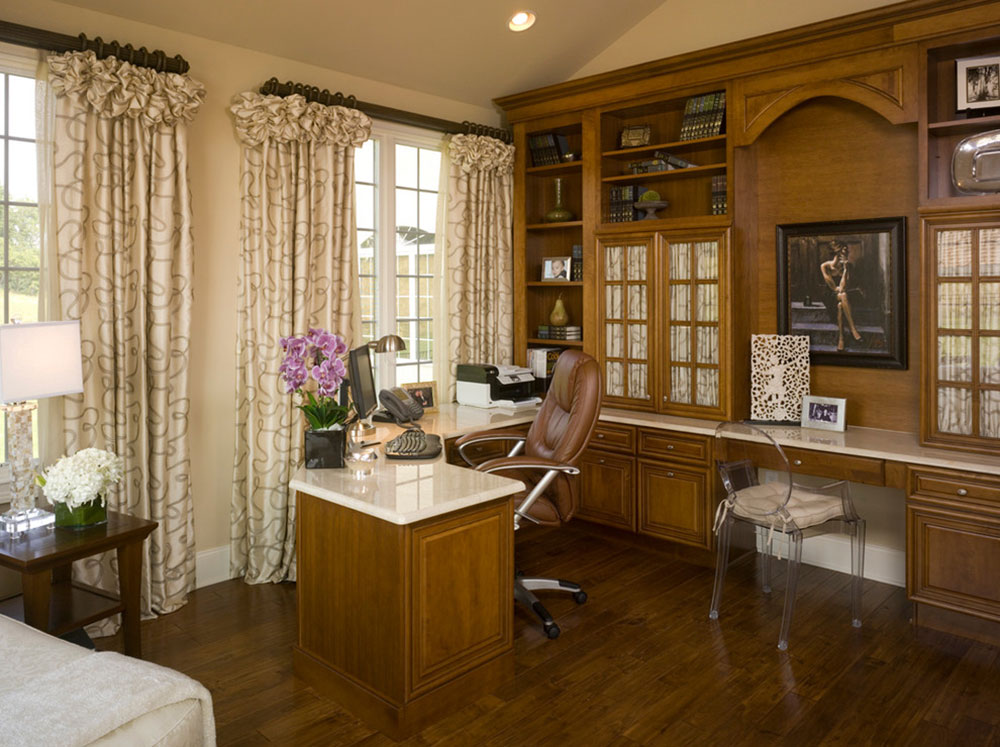 Image source: Interiors by Donna Hoffman
Image source: Interiors by Donna Hoffman
Even if their price is quite affordable, laminate floors are durable and damage-proof. They are very resistant to stains, wear, dirt and abrasion. and they give your office an expensive wood image.
You can also use laminate floors to personalize your space: thanks to their versatility, you can choose styles and colors that go with the rest of your home.
Even so, laminate works best on lower living levels as it creates a hollow sound when applied to the upper floors.
However, if your office cannot be relocated to the ground floor, you can always hire an experienced contractor to install certain mats and extra pillows.
Cement floors
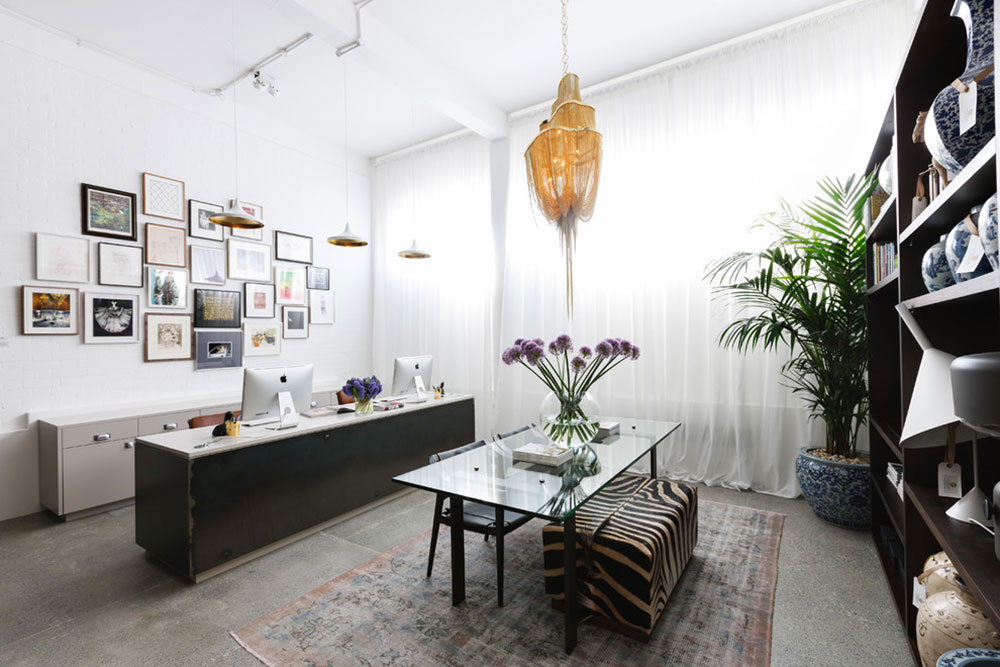 Image source: Maurizio Pellizzoni Ltd.
Image source: Maurizio Pellizzoni Ltd.
Loft houses and offices provide the ideal surfaces for cement / cement-resistant floors. Cement is durable and strong, and its coldness can be easily overcome with a few soft carpets in the places where you put your feet while you work.
Another benefit is that cement can be easily repaired even if it is severely damaged (sometimes it only takes a few minutes).
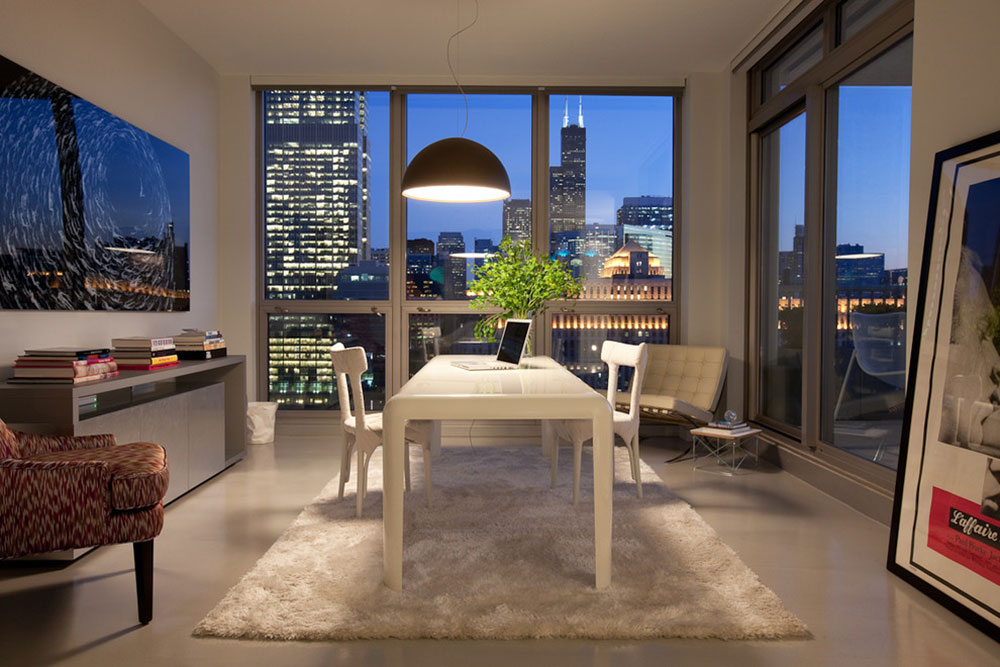 Image source: Jamesthomas Interiors
Image source: Jamesthomas Interiors
Plus, cement is no longer the dull, gray material it used to be. They come in all tones and nuances, sometimes even sparkling or with subtle details that reflect the light in the room. That means you can completely forget about gray floors.
Carpets
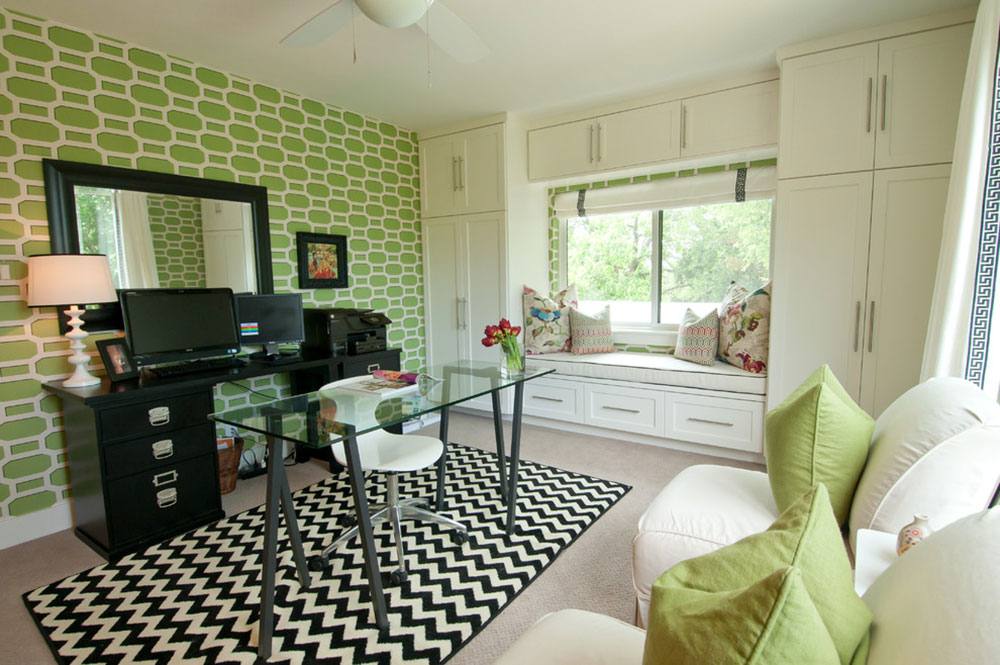 Image source: Butter Lutz Interiors, LLC
Image source: Butter Lutz Interiors, LLC
Carpets are the perfect choice for certain types of offices. While they are more difficult to maintain, soft carpets add a sense of warmth and comfort and are extremely homely. Therefore, only certain careers can benefit from having a rug in their office.
Carpets do not require any special effort to install and can spread from one wall to another if you so choose. Still, try to choose one that will withstand furniture replacement and will not show signs of severe wear and tear after just a few years.
Hardwood floors
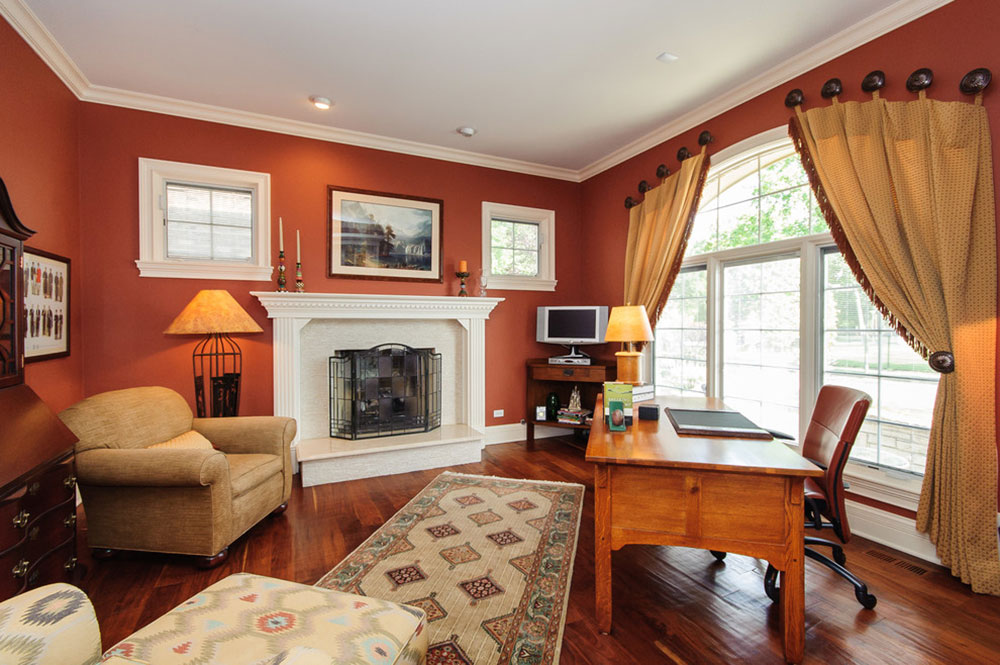 Image source: Yvonne Despinich | @Properties
Image source: Yvonne Despinich | @Properties
Hardwood floors are the classic choice for traditional and antique home offices, chosen primarily for their durability.
Also, hardwood is a very nice option. Those of you who are concerned about the solid maintenance of your floor could buy engineering parts for your home office.
Given the benefits of hardwood floors in your residential area, there’s no reason to skip them in the office space.
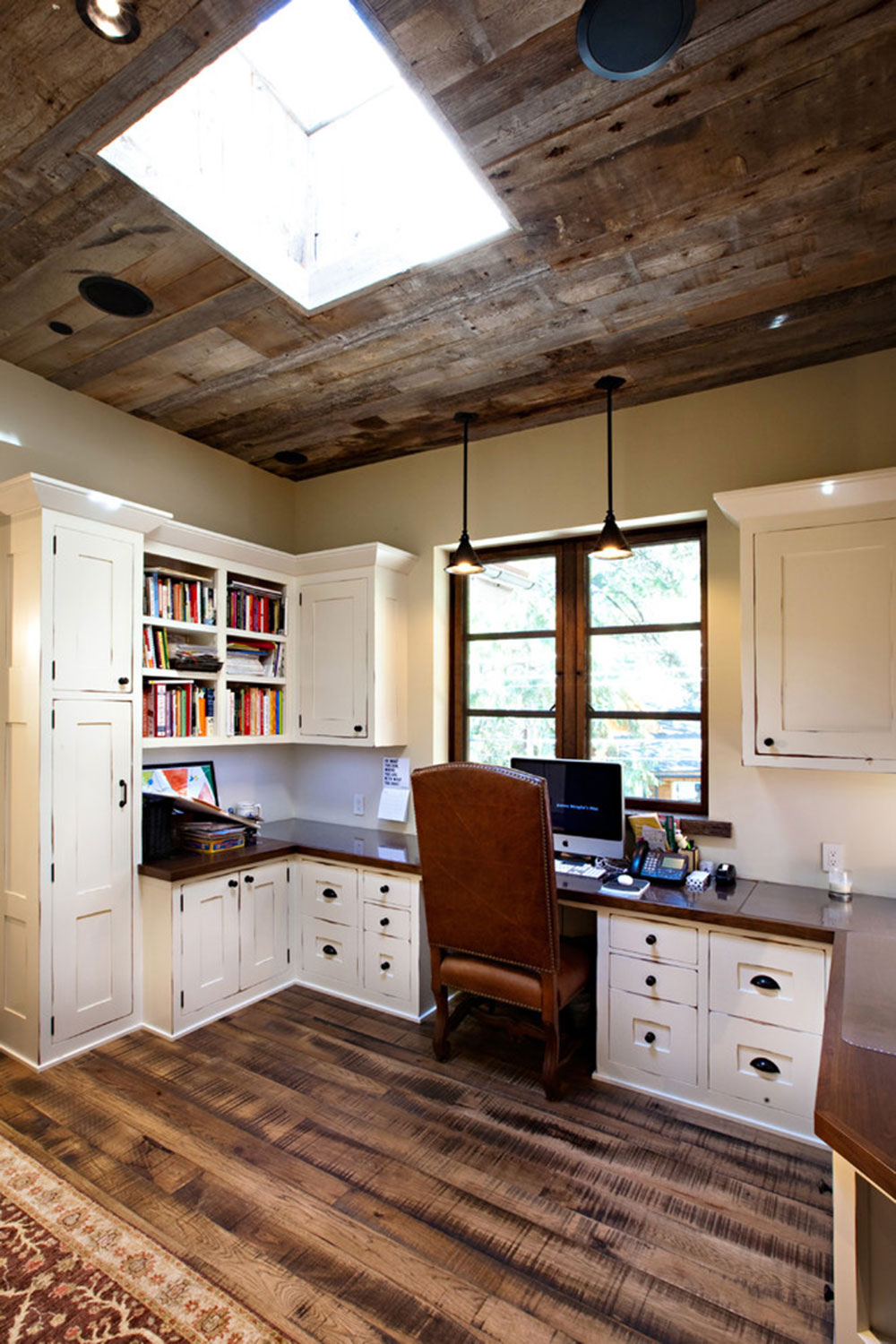 Image source: Greenwood houses
Image source: Greenwood houses
You don’t have to put too much effort into cleaning it and there is almost no risk of damaging its various surfaces. Another benefit is that hardwood floors come in many colors and shades, from light ash to elegant mahogany.
Tile floors
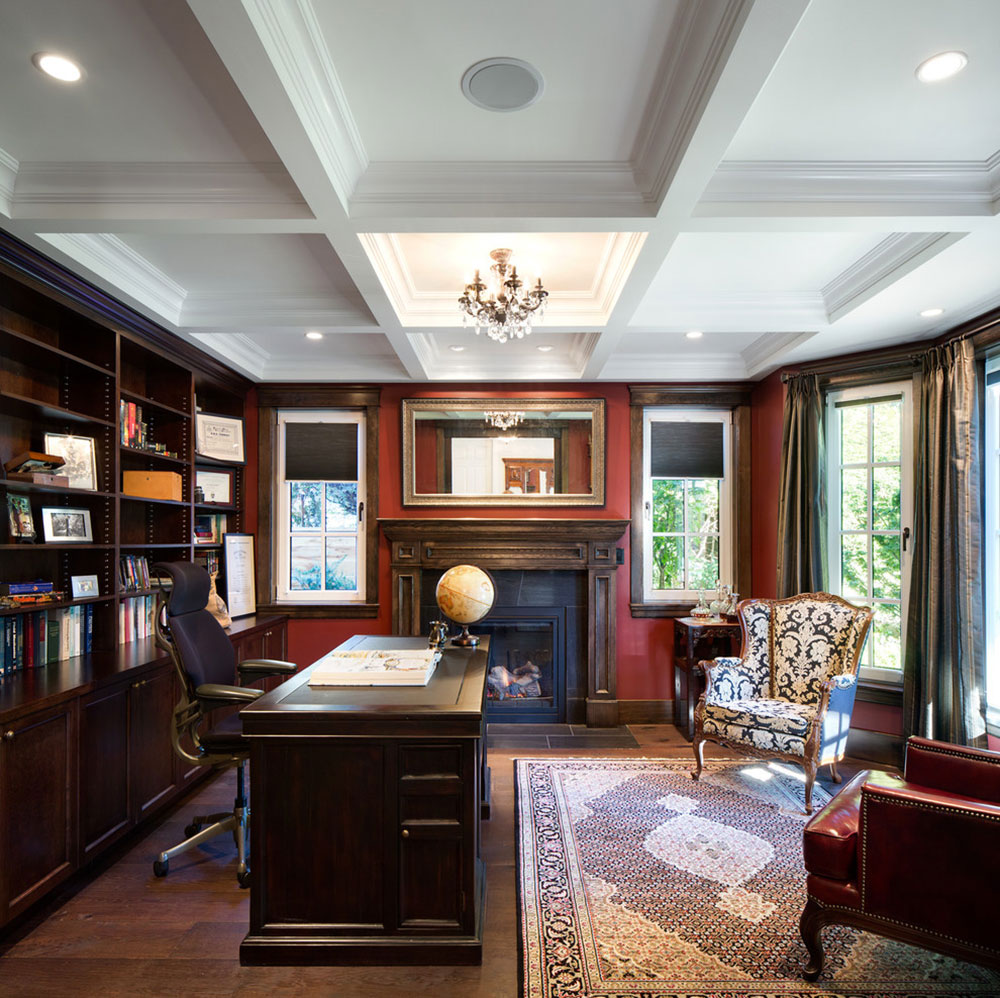 Image source: Naikoon Contracting Ltd.
Image source: Naikoon Contracting Ltd.
Believe it or not, tiles are an excellent choice for any office. Provided you put them down evenly, they’ll reward you with admirable durability and sophisticated looks. However, uneven tiles are prone to damage and cracking.
Tiles are usually made of porcelain, ceramic, stone (travertine or slate), or even recycled materials. Tiles have different properties depending on the material: For example, Mexican Sautillo tiles are porous and difficult to maintain.
Natural stone tiles, on the other hand, come in different sizes and shapes, which means you would have to combine them in mosaics and interesting patterns to camouflage that difference.
An additional advantage of tiles is the variety of shapes, textures and colors.
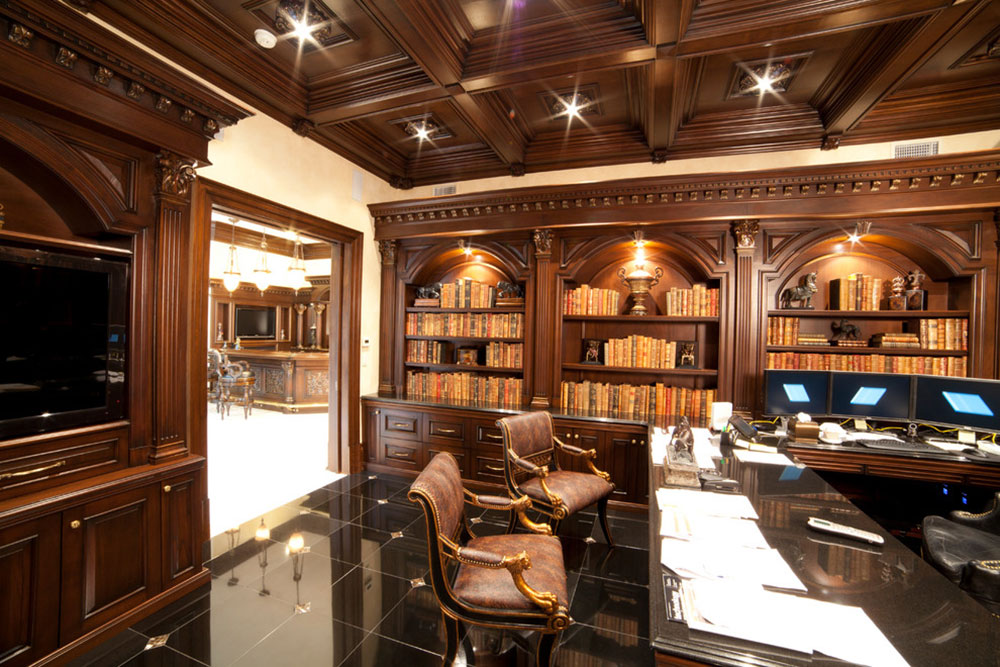 Image source: WL INTERIORS
Image source: WL INTERIORS
The best way to make a decision is to consider your personality and the nature of your profession: creative jobs benefit from brightly colored china, which encourages creativity and inspires ideas, while subtle stone choices (e.g. limestone) are tough regulated roles are better (business, finance, law, etc.). However, both options look elegant and sophisticated.
Vinyl floors
Vinyl floors are perfect for office owners who prefer durability over aesthetics. You’ll have no problem cleaning even the toughest stains, and maintenance will never interest you.
You could roll chairs around or replace cabinets without worrying about damaging your floors. However, you should remember to put footrests under the desk and cabinets to avoid any risk of damage.
Plus, vinyl is the most environmentally friendly option for a home office. Made entirely from recycled materials, it is an amazing green color and a variety of vibrant patterns.
Bamboo floors
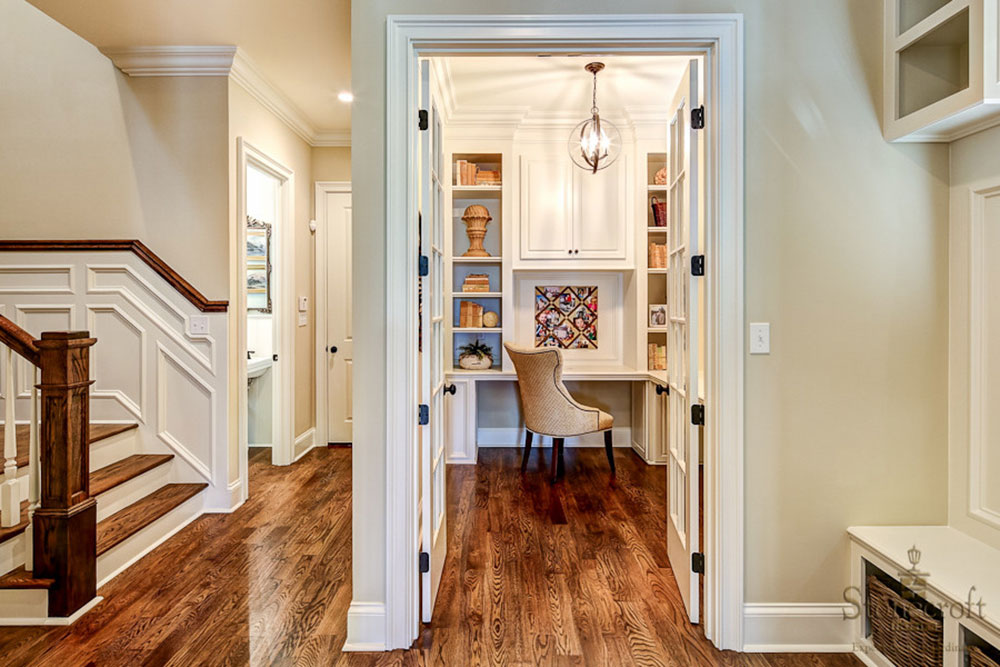 Image source: Stonecroft houses
Image source: Stonecroft houses
Bamboo is ideal for small or medium sized offices as it allows you to use chair mats and at the same time have an attractive floor. Plus, they’re sleek, environmentally friendly, and easy to maintain.
Protect your floors
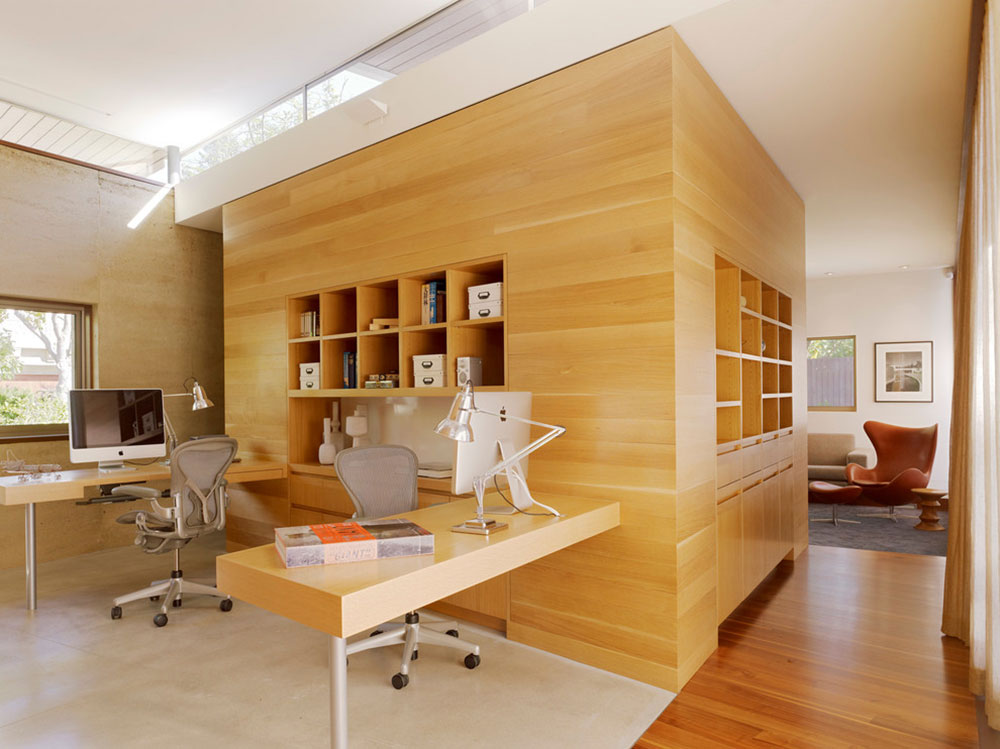 Image source: CCS ARCHITECTURE
Image source: CCS ARCHITECTURE
As much as you try to protect them, after a few years the floors will show signs of wear and tear. Sun exposure, pedestrian traffic or even the reconfiguration of furniture leave marks or damage the floor significantly.
Therefore you should choose durable floors, ideally one that is covered with lots of protective mats.
Some additional tips
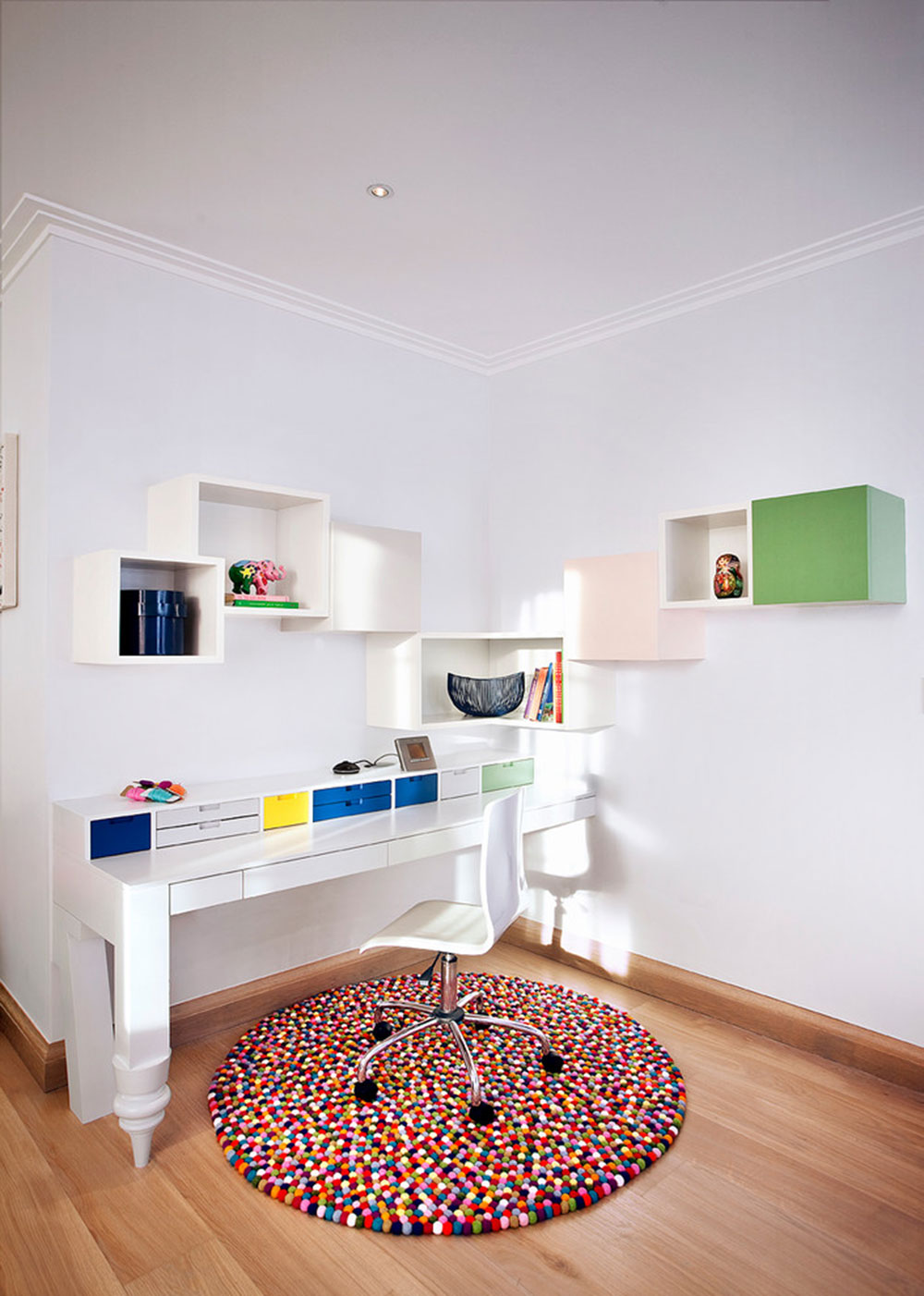 Image source: Roselind Wilson Design
Image source: Roselind Wilson Design
Before choosing the ideal floor for your home office, make sure you have the following information:
- Should the ground “tolerate” a lot of pedestrian traffic?
- Would the soil be exposed to seasonal damage (ice, snow, rain, etc.)?
- Is Low Maintenance Flooring a Good Option for Your Office?
These questions will help you narrow down the perfect flooring options and choose something that actually suits the needs of your work environment.
Price is probably the most important factor to consider. You need to invest in proper furniture, blinds, accessories, and utilities, and these costs can limit your flooring budget.
Remember, however, that floors can really make a difference in how the space looks and feels, and that they aren’t the right items to save on.
 Flower Love
Flower Love
